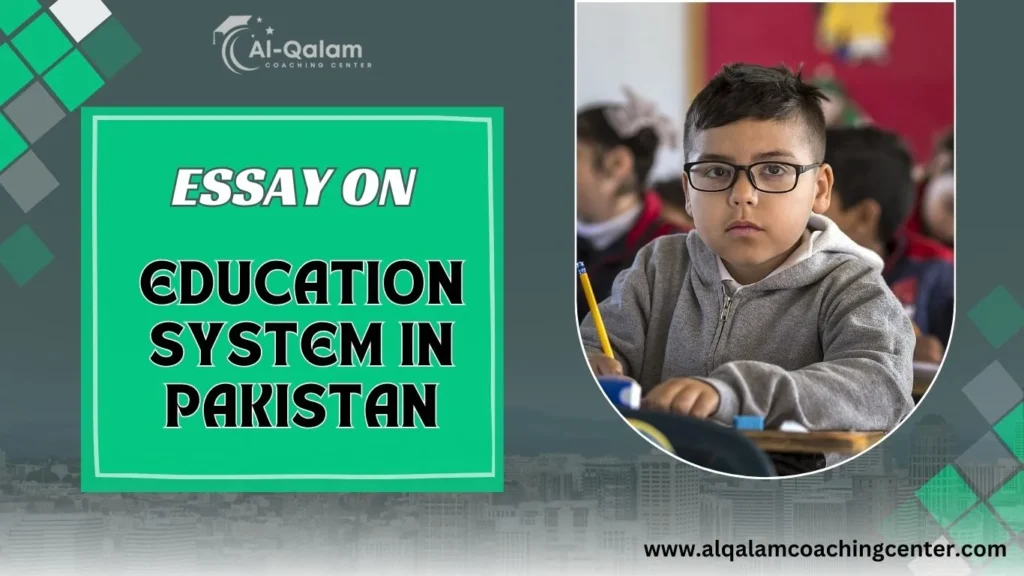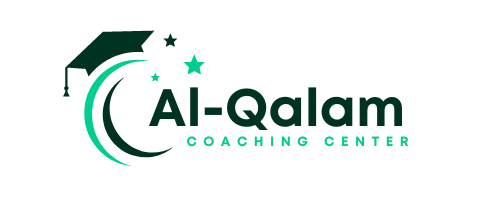Essay on Education System in Pakistan

Essay on Education System in Pakistan – 200 Words
Education is crucial for the development of humanity as it guides individuals on how to navigate their lives and change the world. It is the key to success and the foundation for all accomplishments.
Education also has the power to unite people and bridge divides. Despite its importance, the education system is complex and requires the proper alignment of multiple factors. Government plays a significant role in shaping the education sector through policies and programs. In Pakistan, the education system is in dire need of improvement.
Despite 70 years of independence, the government has yet to implement a unified education system. The current system is divided into six categories, which are based on a flawed social engineering policy. It is imperative to reevaluate this approach.
There are six categories of education, which are:
Pre-Primary schools (Beginning Classes)
Primary schools (class I-V)
Middle schools (class VI-VIII)
Secondary schools (class IX-X)
Higher secondary schools ( class XI-XII)
University level ( Graduation/ Masters)
In conclusion, the education system in Pakistan is in dire need of improvement. The government needs to take a more proactive approach to address the issues of access, quality, and funding. It is also important to re-consider the flawed social engineering policy that has led to a divided education system. By working together, the government, private sector, and civil society can create a more inclusive and equitable education system that will benefit all citizens of Pakistan
Essay on Education System in Pakistan – 500 Words
The education system in Pakistan is of paramount importance as it affects around 3 million students, comprising 6% of the population. Despite the historical richness and comprehensive nature of the Pakistani education system, it is facing numerous challenges that need to be addressed by both the government and the general public.
The education system is divided into six categories, which have relied on a flawed social engineering policy. The categories include government schools, private schools, madrasas, vocational and technical schools, and higher education institutions.
One of the main problems with the education system in Pakistan is the lack of access to education, particularly for girls and children living in rural areas. According to UNESCO, Pakistan has one of the lowest literacy rates in the world, with only 58% of the population being literate. This is a major obstacle to the country’s development and progress.
Article 25-A of the Constitution of Pakistan guarantees free and compulsory education for children between the ages of five and sixteen. However, this provision has not been fully implemented, putting a significant economic burden on parents.
The literacy rate in Pakistan varies greatly depending on the district. For example, while the rate is 96% in Islamabad, it is only 28% in Kohlu.
To improve literacy, it is crucial to encourage reading and promote values such as citizenship, honesty, work ethic, and kindness through education.
The age of the population also plays a significant role in literacy rates, with adults aged 55-64 having a rate of only 38%. This rate should be higher.
Comparatively, the situation is not much better in the United States, where 46% of adults aged 45-54 only possess a high school diploma or equivalent, compared to 57% of those aged 25-34 and 72% of those aged 15-24.
It is evident that there is a need for improvement in the education system of Pakistan. Despite this, progress is being made. Pakistan has a literacy rate of 65%, which is lower than other countries such as Norway at 99%, Japan at 97%, and the United States and Canada at 95%.
The education system in Pakistan is divided into five levels, starting with the primary level for grades one to five. Students must pass 64 national examinations to move on to the next level.
From grades 6 to 8, students are at the middle level. The third level of education in Pakistan is from grades nine to ten and students are expected to complete their Secondary School Certificate (SSC) at this stage
Education is crucial for various reasons. It provides children with better opportunities for high-profile jobs in the future. Additionally, a well-educated population improves public service and infrastructure by decreasing crime rates through the development of more civic-minded citizens.
Despite this, the state of education in Pakistan has seen substantial progress over the years but still has room for improvement. Pakistan produces around 10,000 computer scientists and 445,000 college graduates annually. This is a positive trend for the country and there is even talk of Pakistan becoming a leader in technology and innovation.
Essay on Education System in Pakistan Quotes
Here are some quotes that may be useful for your essay on the education system in Pakistan:
“Education is the most powerful weapon which you can use to change the world.” – Nelson Mandela
“Education is not the learning of facts, but the training of the mind to think.” – Albert Einstein
“The function of education is to teach one to think intensively and to think critically. Intelligence plus character – that is the goal of true education.” – Martin Luther King Jr.
“Education is the key to unlocking the world, a passport to freedom.” – Oprah Winfrey
“Education is the passport to the future, for tomorrow belongs to those who prepare for it today.” – Malcolm X
“If we are to achieve a richer culture, rich in contrasting values, we must recognize the whole gamut of human potentialities, and so weave a less arbitrary social fabric, one in which each diverse human gift will find a fitting place.” – Margaret Mead
“Education is not only a ladder of opportunity, but it is also an investment in our future.” – Barack Obama
“The purpose of education is to replace an empty mind with an open one.” – Malcolm Forbes
“Education is not the filling of a pail, but the lighting of a fire.” – W.B. Yeats
“Education is the most powerful tool which you can use to change the world.” – Nelson Mandela
You can use these quotes as inspiration for your essay, but make sure you use your own words, and properly cite the quotes in your text.
